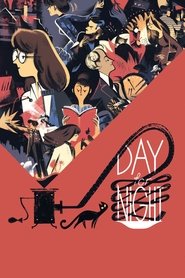Unlike cynical films about Hollywood (The Player, etc.) Truffaut's Day for Night examines the artifice of cinema, without wishing to rob it it of its glamour.
Ultimately a guarded apologia for its filmmaker, since Truffaut’s entire notion of filmmaking, from the work of crew members, to screening dailies, to placing a beautiful woman’s face in the middle of a tight close-up, is one dictated by a romanticism for the medium and contentedly shirks those surrounding implications that Godard deemed necessary for meaningful expression. […] One may accept Day for Night as a lark and a cheeky confirmation of its director’s wit, but to herald it beyond these meager terms betrays a progressive cinema capable of more than simply reaffirming its ability to serve as a warm and fuzzy time capsule.
For a certain kind of emotionally footloose, artistic personality, a movie production is like a homeless shelter: Their basic animal needs are satisfied, they are too tired to see beyond the morning call, and sex, when it comes, is between people who are careful to agree it doesn’t mean too much.
Truffaut’s stripping Ferrand of overt emotion and, particularly, a sex life was what prompted Jean-Luc Godard to call his former friend a liar, in the first of an angry exchange of letters between the two leading figures of the French New Wave that resulted in their definitive break.

